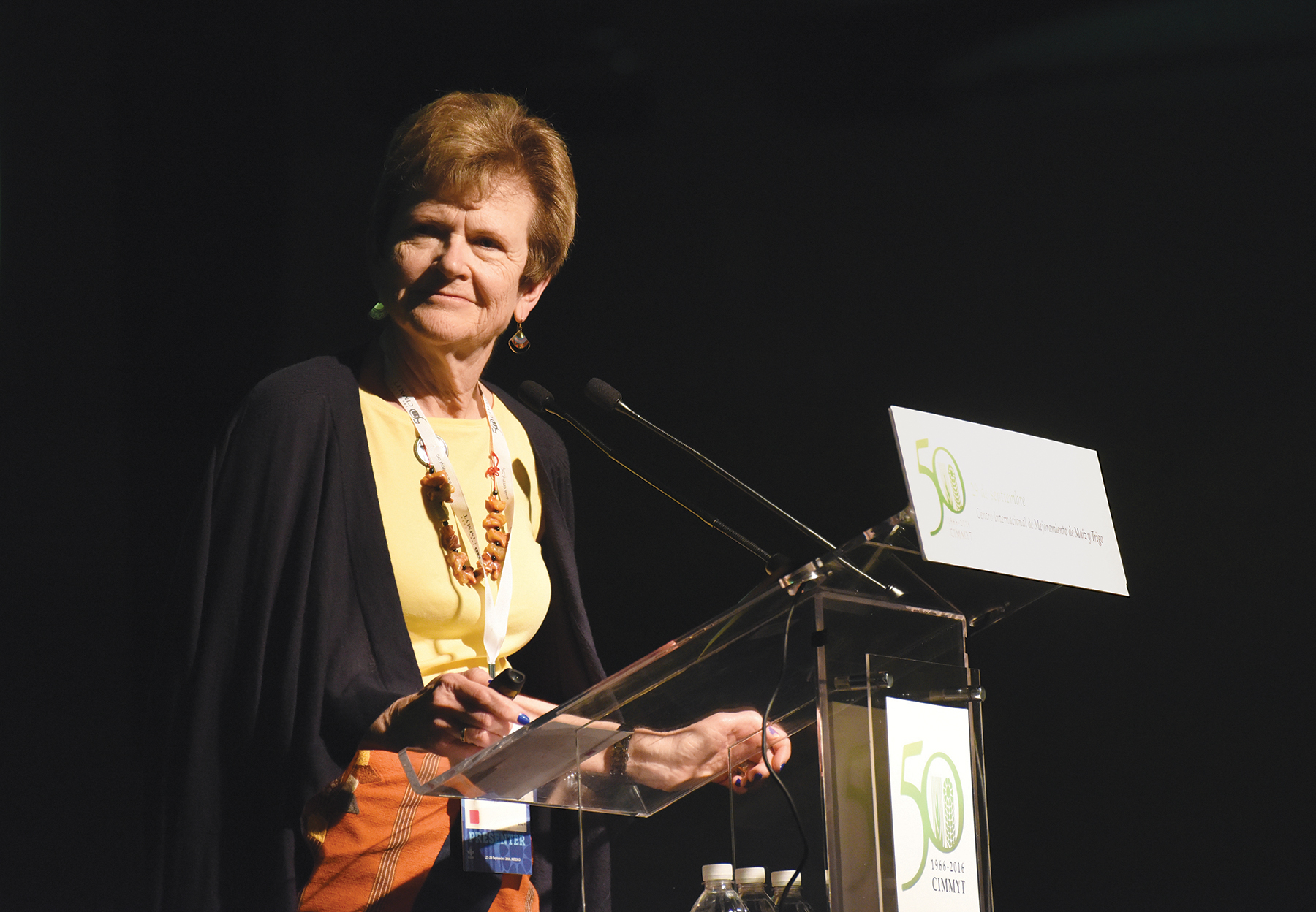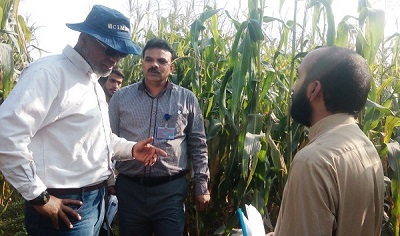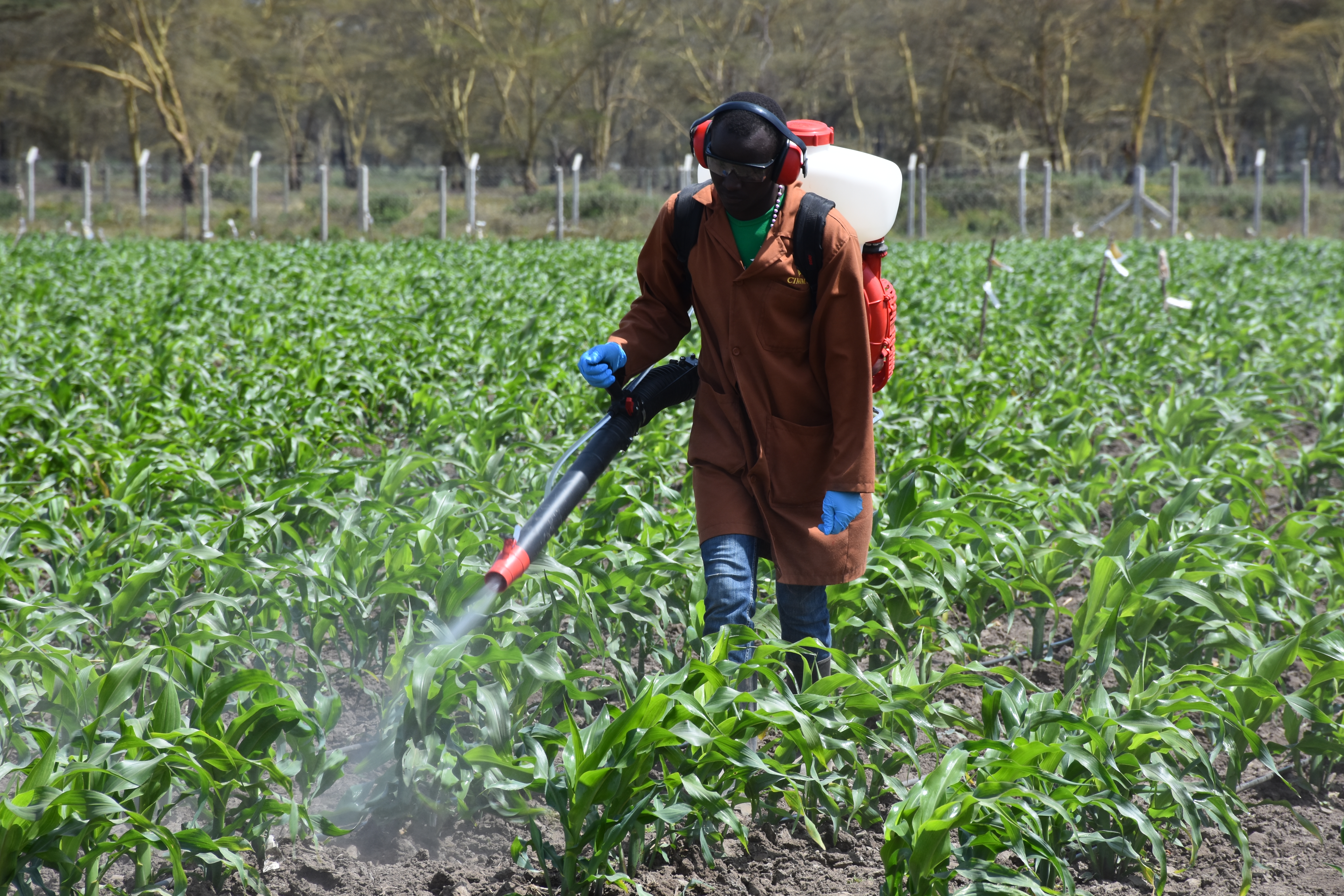Nutrition, health and food security
As staple foods, maize and wheat provide vital nutrients and health benefits, making up close to two-thirds of the world’s food energy intake, and contributing 55 to 70 percent of the total calories in the diets of people living in developing countries, according to the U.N. Food and Agriculture Organization. CIMMYT scientists tackle food insecurity through improved nutrient-rich, high-yielding varieties and sustainable agronomic practices, ensuring that those who most depend on agriculture have enough to make a living and feed their families. The U.N. projects that the global population will increase to more than 9 billion people by 2050, which means that the successes and failures of wheat and maize farmers will continue to have a crucial impact on food security. Findings by the Intergovernmental Panel on Climate Change, which show heat waves could occur more often and mean global surface temperatures could rise by up to 5 degrees Celsius throughout the century, indicate that increasing yield alone will be insufficient to meet future demand for food.
Achieving widespread food and nutritional security for the world’s poorest people is more complex than simply boosting production. Biofortification of maize and wheat helps increase the vitamins and minerals in these key crops. CIMMYT helps families grow and eat provitamin A enriched maize, zinc-enhanced maize and wheat varieties, and quality protein maize. CIMMYT also works on improving food health and safety, by reducing mycotoxin levels in the global food chain. Mycotoxins are produced by fungi that colonize in food crops, and cause health problems or even death in humans or animals. Worldwide, CIMMYT helps train food processors to reduce fungal contamination in maize, and promotes affordable technologies and training to detect mycotoxins and reduce exposure.
Delegates gather in Morocco to combat nematodes in agriculture
 Nutrition, health and food security
Nutrition, health and food security
Eighty delegates from across the globe recently gathered at the 6th International Cereal Nematode Symposium in Agadir, Morocco to discuss the spread of nematodes.
Yemen identified as “stepping stone” to wheat stem rust’s global spread
 Nutrition, health and food security
Nutrition, health and food security
New research reveals the most likely routes for the spread of new wheat stem rust strains.
Leading nutritionist cites whole grains as critical for better nutrition and health
 Nutrition, health and food security
Nutrition, health and food security
People who eat whole grain foods have a lower risk of almost all chronic diseases and are less likely to gain weight as they age, according to nutritionist Julie Miller Jones.
Maize biofortification fights malnutrition in Pakistan
 Nutrition, health and food security
Nutrition, health and food security
In the face of endemic malnutrition, researchers in Pakistan are turning to biofortified maize to combat vitamin A, zinc and protein deficiencies.
New evidence shows forests help reduce malnutrition
 Nutrition, health and food security
Nutrition, health and food security
Living near forests can help locals increase their dietary diversity, and combat hidden hunger.
Next generation hunger fighters call education key to a food secure future
 Nutrition, health and food security
Nutrition, health and food security
Two Borlaug-Ruan interns at CIMMYT share their opinions about battling food insecurity.
Breaking Ground: Scientist L.M. Suresh uses new technology to fight maize lethal necrosis disease in eastern Africa
 Nutrition, health and food security
Nutrition, health and food security
Maize lethal necrosis (MLN) disease is putting maize production at risk in eastern Africa, escalating food insecurity in the region.
New online portal offers information to curb maize lethal necrosis in Africa
 Innovations
Innovations
The new maize lethal necrosis online portal provides up-to-date information and surveillance tools to help researchers control and stop the spread of the deadly disease.
New funding focus on agricultural research key to achieve global development goals
 Nutrition, health and food security
Nutrition, health and food security
Food and agriculture have the potential to be major drivers in helping achieve the U.N. Sustainable Development Goals by 2030, but are currently underutilized, say experts.
Media highlight sustainable innovations in Pakistan during USAID tour
 Nutrition, health and food security
Nutrition, health and food security
Breaking Ground: Dagne Wegary at a busy intersection on the maize value chain
 Nutrition, health and food security
Nutrition, health and food security
As a maize seed system specialist, Dagne Wegary works at the nexus between breeding science and actual delivery of improved seed to farmers.
New Publications: Better post-harvest storage can raise vitamin A intake 25 percent in Zambia
 Nutrition, health and food security
Nutrition, health and food security
Recent modeling studies in Zambia suggest that provitamin A maize’s impact is being cut short by the low retention of carotenoids during storage and postharvest grain loss.
Zimbabwe steps up food security with vitamin A maize
 Nutrition, health and food security
Nutrition, health and food security
More farmers in Zimbabwe are demanding high-yielding, highly nutritious and drought tolerant provitamin A maize.
Increased investment needed to adapt Africa’s agriculture to climate change
 Nutrition, health and food security
Nutrition, health and food security
Delegates at a conference in June called for a new focus and increase in investment to ensure eastern and southern Africa’s farming systems can withstand the impacts of climate change.
CIMMYT sends largest ever seed shipment to revitalize agriculture in Haiti
 Nutrition, health and food security
Nutrition, health and food security
CIMMYT will send 150 tons of renewed, improved maize seed to Haiti, the largest seed shipment to any country in the organization’s history.


